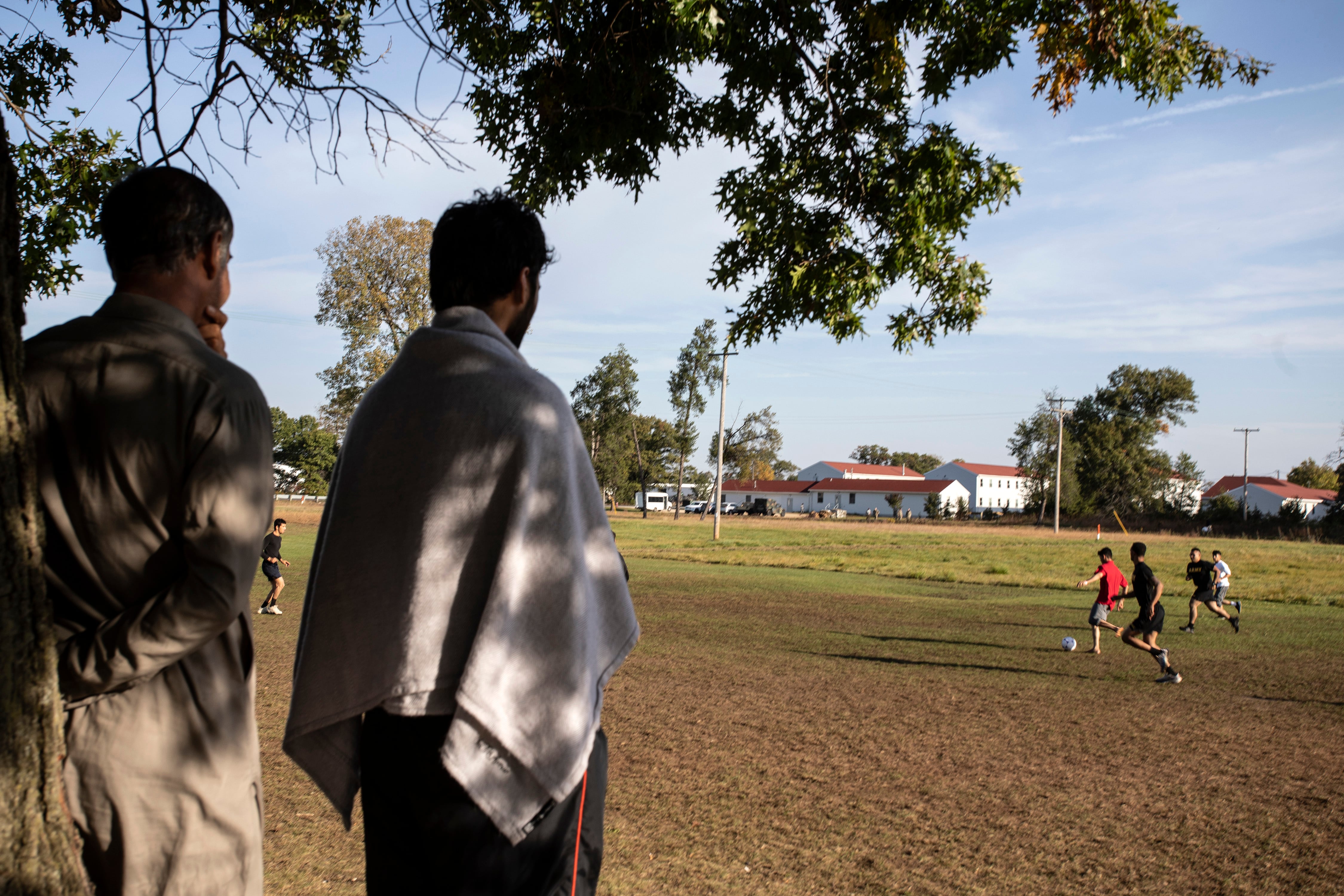WASHINGTON (AP) — Afghan refugees will soon be arriving again in the U.S. after a massive campaign to vaccinate them against measles following a small outbreak that caused a three-week pause in evacuations, officials said Monday.
Authorities have administered the vaccination to about 49,000 people since measles was detected among some of the evacuees, according to the Department of Homeland Security. That figure included refugees at staging areas in Europe and the Middle East, as well as those who had already arrived at U.S. military bases before the pause.
The measles outbreak, detected in 24 people, had put on hold one of the largest refugee resettlement efforts in U.S. history, dubbed Operation Allies Welcome, and stranded about 15,000 at overseas transit points.
“The success of this vaccination campaign demonstrates our commitment to the health and well-being of arriving Afghan evacuees, the personnel assisting this mission, and the American people,” Dr. Pritesh Gandhi, the DHS chief medical officer, said in announcing the completion of the effort.
Everyone coming from Afghanistan in the evacuation is also tested for COVID-19 and about 84 percent of the refugees in the U.S. and at overseas transit points have now been vaccinated for the virus, officials said.
The U.S. evacuated about 120,000 people in the chaotic days following the fall of Kabul to the Taliban in August. They were a mix of U.S. citizens, Afghans with legal permanent residency or who were applying for visas and refugee status along with their families.
There are about 53,000 Afghans currently staying at eight U.S. military bases receiving medical care and other assistance before they settle around the U.S.
Gen. Glen VanHerck, head of U.S. Northern Command, told reporters Thursday that about 4,000 Afghans at the U.S. bases have completed medical screening and the 21-day quarantine required after receiving the vaccine for measles, mumps, rubella, and chickenpox that most Americans receive in childhood.





